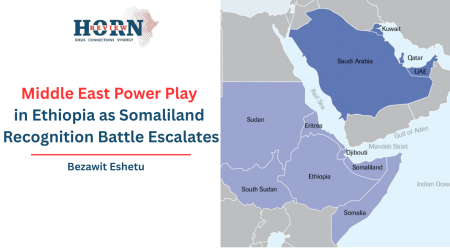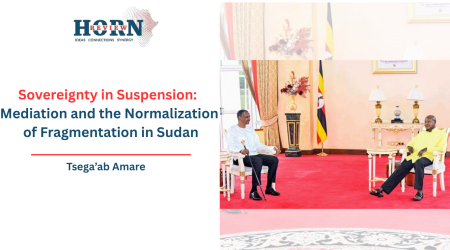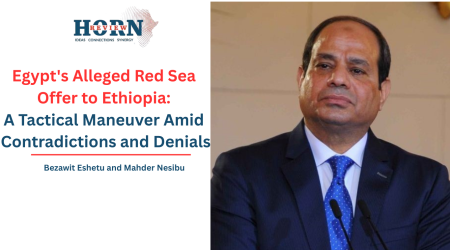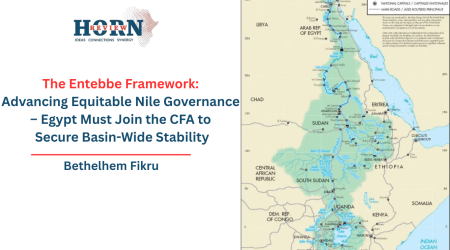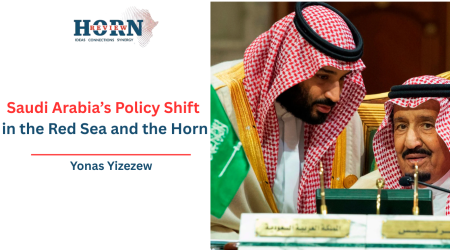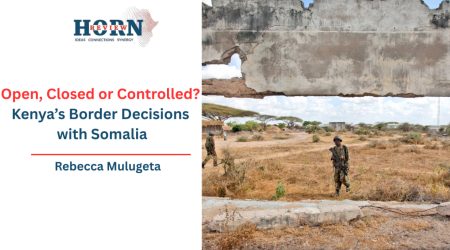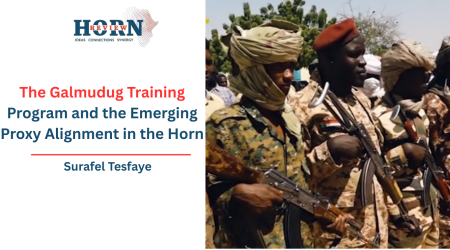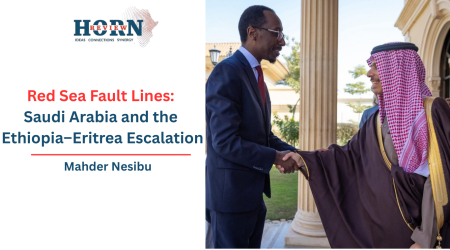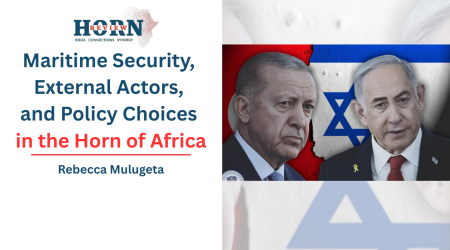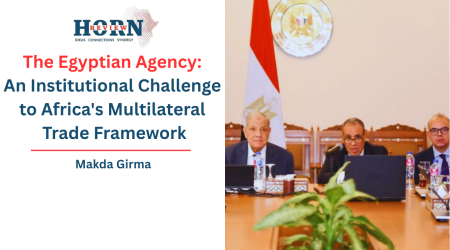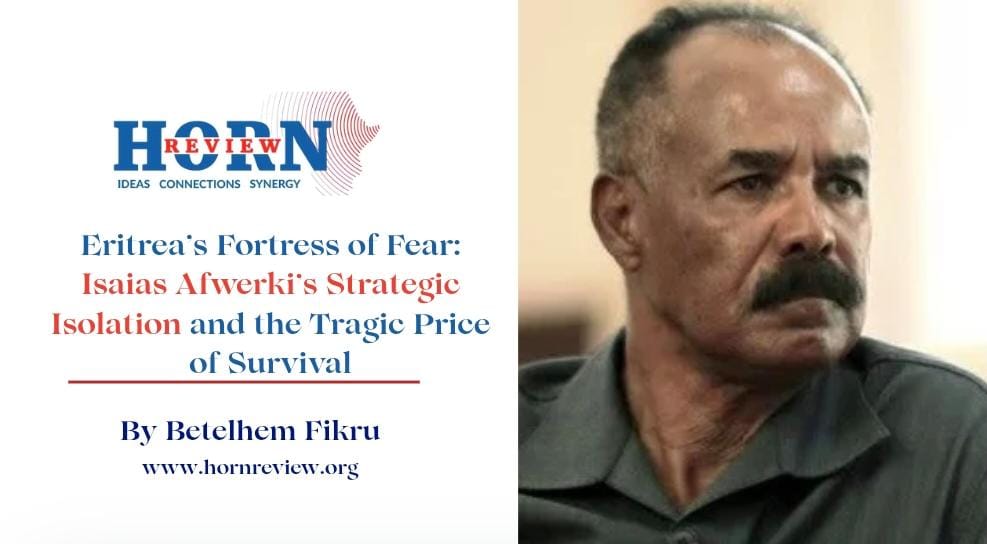
27
Oct
Eritrea’s Fortress of Fear: Isaias Afwerki’s Strategic Isolation and the Tragic Price of Survival
In the charred badlands of the Horn of Africa, where the Red Sea coast is blighted with decades of conflict and unfulfilled potential, Eritrea stands as a bleak monument to an illusion of an authoritarian nature. President Isaias Afwerki has ruled for 32 years, not as a champion of freedom, as he started, but as a paranoid jailer, confining his people in prisons of oppression and rhetoric. The separation in the 1990s were meant to usher in liberty, and it ushered in the most isolated dictatorship in black Africa. Afwerki has referred to it as “strategic isolation by choice,” but closer scrutiny reveals this more as a self-serving formula for dictatorship rather than an ideological stance. The Eritreans, meanwhile, pay in their very lives: they are imprisoned in a citadel of terror, where loneliness is impossible but brutal, collective destiny.
Through the deserted halls of Asmara, the triumphal laughter rings thin, not victory, but defeat. The West,standing by and watching with realistic detachment, is party to the subtle ruin, and the troubled region hangs poised, ever collateral to one man’s stubborn gamble. It is not a story of stubborn defiance, but one of survival through engineering hopelessness, in which a leader, wracked by his own personal demons, creates domestic stagnation and regional instability as a means of clinging to power.
The notion of Eritrea’s true isolation, often cited due to three decades of sanctions,including the UN arms embargo from 2009 to 2018, is a geopolitical illusion. Afwerki’s regime, draped in the tattered cloak of self-reliance, did not wither; it thrived in the shadows through selective rapprochement. Sanctions provided an ideal domestic narrative, a siege mentality justifying the iron fist,while simultaneously creating the space for transactional shadow dealings that ensured the regime’s liquidity.
Rather than being isolated, Asmara strategically wooed key regional players. In disregard of its anti-West rhetoric, the regime built relationships with the very Gulf states that the Western powers sought to access. With the UAE and Saudi Arabia at war in Yemen, the Eritrean port of Assab became an optimum logistics base. Millions came through the ports, literally making Eritrea a mercenary garrison, a plain barter of territorial sovereignty and geopolitical value for hard cash to fund the domestic security state. Instead of isolationism, this was rapprochement by other means, a trade of national interest for the preservation of the presidency, even while Afwerki still complained of supposed “Western conspiracies” to his captive, tightly managed audience. The West, though, was not ever in suspension but had its hands behind the scenes, its role managed to suit the changing geopolitical needs of the Red Sea corridor.
Afwerki’s greatest political achievement was his preemptive counter-revolution, which ensured the Arab Spring tidal wave of 2011 crashed harmlessly against Eritrea’s iron shores.Unlike neighbors who crumbled under similar gales,like the fall of Sudan’s Omar al-Bashir or the revolutionary shifts caused by Oromo and Amhara protests in Ethiopia, Afwerki secured his position a decade earlier through the annihilation of all viable alternatives.
The 2001 purge of the G-15 reformist comrades and the shuttering of all independent media were the pivotal, foundational acts. This removed any credible political opposition and enacted a total information blackout, disconnecting the populace from the global pulse of revolutionary momentum. The regime’s survival hinges on a populace so politically and economically deprived that they dare not whisper demands for bread, let alone rebellion. The deliberate underdevelopment of education, with a distinct lack of universities and limited access to global knowledge, ensures citizens remain uninformed and organizationally inert. When dissent did surface, as in the Forto Mutiny of 2013, the regime’s loyalist security apparatus was ruthlessly effective, quashing the brief, symbolic challenge within hours.
Leading the regime is the open-ended National Service, a brutal Afwerki inheritance and ultimate security guarantee. The conscription reduces almost all Eritrean youth to slave-laborer rank, beaten into servitude in desert camps, far from any protest square. This not only provides the state economy with cheap labor but, more important, demolishes the economic and social aspirations of the most recalcitrant populace, ensuring that their expectations of a life of prosperity, the much-vaunted “Singapore in the Horn”, rest under a heap of repression. The resultant wholesale flight of refugees provides a paradoxical “safety valve,” siphoning off would-be revolutionaries while remittances they send back to their own nation ironically help replenish the state treasury, subsidizing still further that security machinery which had compelled them from it. Existence for Afwerki is not one of accommodation to popular feeling; it is one of the systematic annihilation of any hostile political and social will.
Afwerki’s existential threat calculation dictates his erratic, yet calculated, regional maneuvers. Survival is not a luxury; it is his only choice. Recognizing that a fall from power would leave him with no secure haven, a lesson learned from the fate of figures like Mengistu Haile Mariam,he has designed his entire state as a personal lockup. His recent strategic moves are aimed at reinforcing this bunker state by leveraging the shifting geopolitical sands of the Horn.
The U.S. State Department’s sustained engagement, symbolized by the presence of Chargé d’Affaires Christine E. Meyer in Asmara, is a critical piece of this puzzle. This diplomatic attention gains significance when viewed against the backdrop of Ethiopia’s growing ties with the East. Ethiopia’s increasingly unpredictable foreign policy posture from a Western perspective has inadvertently bestowed geopolitical advantage on Eritrea. For Western powers anxious to stabilize the Red Sea corridor and counter potential Sino-Russian influence, a strategically located, albeit problematic, Eritrea becomes an indispensable, if distasteful partner.
This gives Afwerki access to the West, not from any desire for reform or democratic zeal, but in order to consolidate himself in the long term. The foreign policy alignment is a realpolitik concession, giving room for a required cushion of security and a level of international legitimacy vital to the stability of his administration. The so-called isolationist has thus become the unequalled geopolitician opportunist, trading in his carefully nurtured threat for security and influence, and sacrificially deploying the catastrophe of his people as the collateral losses in the Horn of Africa’s long, cynical great power game.
By Bethelhem Fikru, Researcher, Horn Review

